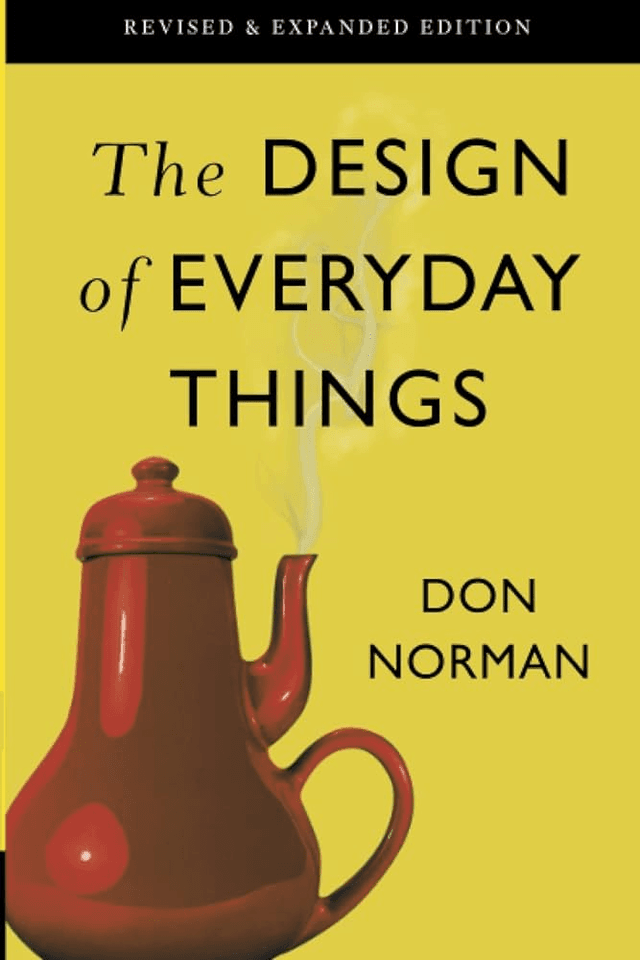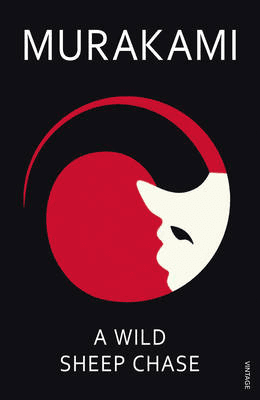The Design Of Everyday Things vs. A Wild Sheep Chase
The Design Of Everyday Things
Even the smartest among us can feel inept as we fail to figure out which light switch or oven burner to turn on, or whether to push, pull, or slide a door. The fault, argues this ingenious -- even liberating -- book, lies not in ourselves, but in product design that ignores the needs of users and the principles of cognitive psychology. The problems range from ambiguous and hidden controls to arbitrary relationships between controls and functions, coupled with a lack of feedback or other assistance and unreasonable demands on memorization. The Design of Everyday Things shows that good, usable design is possible. The rules are simple: make things visible, exploit natural relationships that couple function and control, and make intelligent use of constraints. The goal: guide the user effortlessly to the right action on the right control at the right time. The Design of Everyday Things is a powerful primer on how -- and why -- some products satisfy customers while others only f...
A Wild Sheep Chase
A Wild Sheep Chase by Haruki Murakami is a strange, offbeat novel that blends a detective story with surreal, dreamlike elements. It follows an unnamed, easygoing narrator who gets pulled into a bizarre search for a mysterious sheep with a star-shaped mark on its back. The story kicks off when a powerful figure in Japan’s underworld pressures the narrator into finding this sheep, which seems to hold some kind of mystical influence. The book is set in late 1970s Japan, moving from urban Tokyo to the cold, isolated landscapes of Hokkaido. Along the way, the narrator is joined by his girlfriend, whose unusually perceptive ears give the story an added touch of the weird. They meet a cast of quirky characters—a shadowy secretary, a reclusive professor obsessed with sheep, and a man in a sheep costume who speaks in riddles. What stands out is how ordinary things—bars, hotels, quiet towns—become strange and otherworldly. Murakami mixes humor, loneliness, and philosophical musings, all wrapp...

Reviews
Reviews
| Item | Votes | Upvote |
|---|---|---|
| No pros yet, would you like to add one? | ||
| Item | Votes | Upvote |
|---|---|---|
| No cons yet, would you like to add one? | ||
| Item | Votes | Upvote |
|---|---|---|
| More accessible than some of Murakami’s other works | 1 | |
| Good starting point for new Murakami readers | 1 | |
| Recognized with the 1982 Noma Literary Newcomer's Prize | 1 |
| Item | Votes | Upvote |
|---|---|---|
| No cons yet, would you like to add one? | ||
Frequently Asked Questions
'The Design Of Everyday Things' focuses on practical design principles and usability, making it a valuable resource for designers and anyone interested in improving everyday interactions with products. In contrast, 'A Wild Sheep Chase' is a surreal novel that explores philosophical themes and magical realism, which may not offer practical insights but provides a rich narrative experience. Therefore, if you're looking for practical knowledge, 'The Design Of Everyday Things' is the better choice.
'The Design Of Everyday Things' is a standalone book that provides foundational knowledge about design principles, making it accessible to anyone regardless of prior knowledge. On the other hand, 'A Wild Sheep Chase' is a good starting point for readers new to Haruki Murakami, as it is recognized for being more accessible than some of his other works. If the reader is interested in design, they should choose 'The Design Of Everyday Things', but if they want to explore Murakami's unique storytelling, 'A Wild Sheep Chase' would be ideal.
'A Wild Sheep Chase' has received literary recognition, including the 1982 Noma Literary Newcomer's Prize, which highlights its significance in the literary world. In contrast, 'The Design Of Everyday Things' is highly regarded in the field of design and usability but does not have the same type of literary accolades. Therefore, if literary recognition is a key factor, 'A Wild Sheep Chase' stands out more.
'The Design Of Everyday Things' is a book that explores the principles of good product design. It argues that many common usability issues stem from poor design that ignores the needs of users and cognitive psychology principles. The book emphasizes making controls and functions visible, using natural relationships, and applying intelligent constraints to guide users effortlessly.
The author of 'The Design Of Everyday Things' is Don Norman, a renowned cognitive scientist and usability engineer known for his contributions to the field of design.
'The Design Of Everyday Things' discusses several key principles of good design, including making things visible, exploiting natural relationships between controls and their functions, and using constraints intelligently to guide users towards the right actions.
'The Design Of Everyday Things' is considered a powerful primer on design because it provides clear, actionable guidelines for creating user-friendly products. It explains why certain designs frustrate users and offers practical solutions to make products more intuitive and satisfying to use.
'A Wild Sheep Chase' by Haruki Murakami is a unique novel that combines elements of a detective story with surreal and dreamlike qualities. It follows an unnamed narrator who is drawn into a bizarre quest to find a mysterious sheep marked with a star on its back, under pressure from a powerful figure in Japan's underworld. The narrative unfolds in late 1970s Japan, transitioning from urban Tokyo to the remote landscapes of Hokkaido, and features a cast of eccentric characters and themes of identity, power, and the search for meaning.
Pros of 'A Wild Sheep Chase' include its accessibility compared to some of Murakami's other works, making it a good starting point for new readers. Additionally, it was recognized with the 1982 Noma Literary Newcomer's Prize. There are no listed cons for this novel, indicating that readers generally find it appealing.
Haruki Murakami is a renowned Japanese author known for his unique blend of magical realism, surrealism, and themes of loneliness and existentialism. His works often explore the complexities of human relationships and the nature of reality. Murakami has gained international acclaim and has written several bestsellers, including 'Norwegian Wood', 'Kafka on the Shore', and '1Q84'.
'A Wild Sheep Chase' explores themes such as identity, power, and the search for meaning. The narrative often blurs the lines between the ordinary and the surreal, inviting readers to reflect on the nature of reality and the significance of the bizarre encounters the narrator experiences throughout his journey.




















